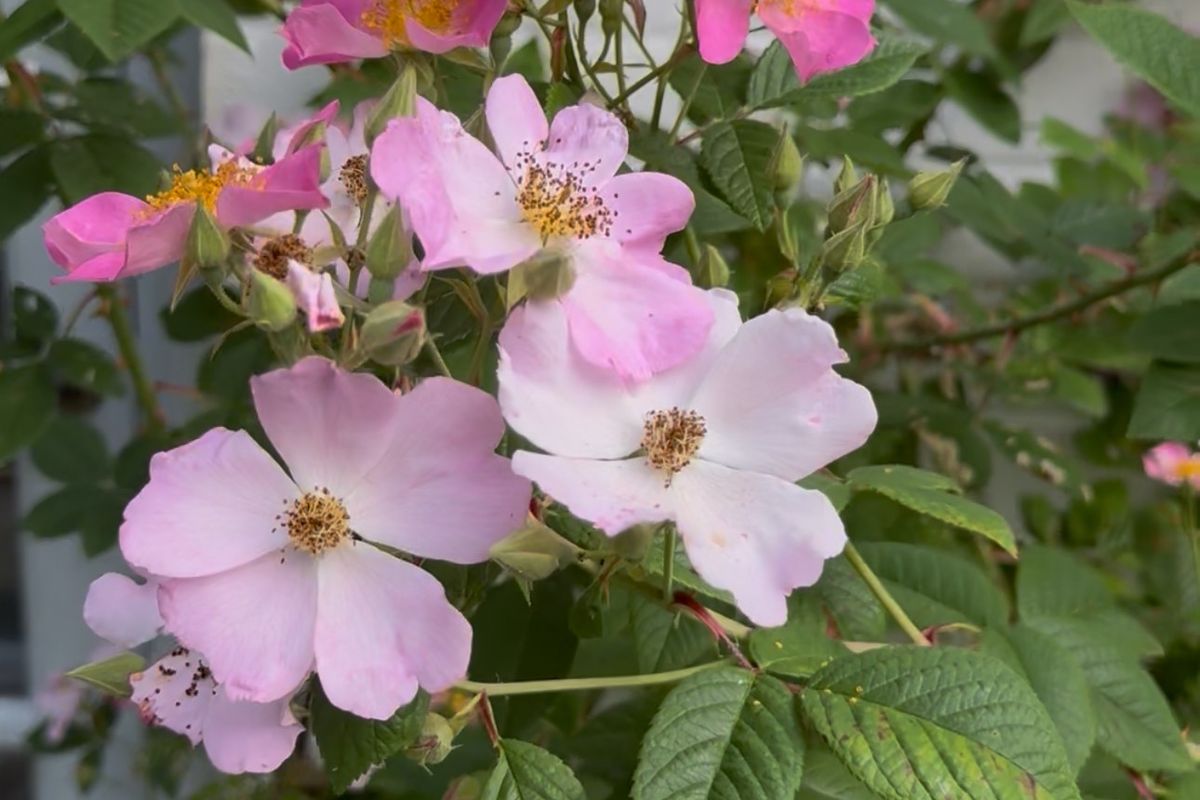Latest News
Join us for
Jul 16, 2025

Join The Lakeville Journal for a community celebration, featuring local nonprofits and businesses, festive family fun, great food, and engaging activities.
What to Expect:
- Nonprofits will showcase their missions along Academy Street
- Grab a bite from food trucks or nearby restaurants
- Kid’s activities
- Scavenger hunt
- Live music
- Face painting
- Businesses will open their doors with special offerings
See you at the Lakeville Journal Street Fair!
If you have any questions, please email streetfair@lakevillejournal.com
Keep ReadingShow less
Summer Nights of Canaan
Jul 16, 2025
Wednesday, July 16
Cobbler n’ Cream
5 to 7 p.m.
Freund’s Farm Market & Bakery | 324 Norfolk Rd.
Canaan Carnival
6 to 10 p.m.
Bunny McGuire Park
Thursday, July 17
Canaan Carnival
6 to 10 p.m.
Bunny McGuire Park
Friday, July 18
Cocktail Party
5 to 7 p.m.
Douglas Library | 108 Main St.
Canaan Carnival
6 to 10 p.m.
Bunny McGuire Park
Saturday, July 19
Boot Drive
8 a.m. to 2 p.m.
North Canaan Fire Co. | 4 E. Main St.
3rd Annual Fly-In
8 a.m. to 3 p.m.
Triumph Airfield | 547 W. Main St.
Canaan Railroad Station Museum
10 a.m. to 6 p.m.
Canaan Union Station
New England Accordion Connection
9 a.m. to 8 p.m.
Canaan Union Station
Canaan Carnival
3 to 10 p.m.
Bunny McGuire Park
Berkshire Resilience Brass Band
5 to 8 p.m.
Canaan Union Station
Barbecued Chicken Dinner
5 to 7 p.m.
St. Martin of Tours | 4 Main St.
Canaan Fireman’s parade
6 p.m.
Keep ReadingShow less
When the guide gets it wrong
Jul 16, 2025
Rosa setigera is a native climbing rose whose simple flowers allow bees to easily collect pollen.
Dee Salomon
After moving to West Cornwall in 2012, we were given a thoughtful housewarming gift: the 1997 edition of “Dirr’s Hardy Trees and Shrubs.” We were told the encyclopedic volume was the definitive gardener’s reference guide — a fact I already knew, having purchased one several months earlier at the recommendation of a gardener I admire.
At the time, we were in the thick of winter invasive removal, and I enjoyed reading and dreaming about the trees and shrubs I could plant to fill in the bare spots where the bittersweet, barberry, multiflora rose and other invasive plants had been.Years later, I purchased the 2011 edition, updated and inclusive of plants for warm climates.
On the cover of the new edition, a quote from Adrian Higgins of The Washington Post boasts, “Michael Dirr is the oracle of ornamental horticulture. I trust his judgements implicitly.”I heartily disagree with Mr. Higgins:I blame this book — and my poor use of it — for some of my worst tree and shrub choices.
I realize some readers might find this declaration inflammatory. The book still occupies a place of high regard among experienced and novice gardeners alike, so please allow me to explain.
In addition to giving the reader his opinion on the aesthetic worthiness of the woody plants included in the book, Mr. Dirr makes good on the book’s title with a review of each species’ hardiness. What makes a tree hardy?It thrives in its intended site, resisting disease with leaves and bark not readily eaten by insects and other critters.
Non-native plants make up the majority of the recommended hardy plants in the book.And here is why:Native trees and shrubs are, by evolution’s design, food source and host to our native fauna — critters large and small. There is no substitute equal to the fauna’s co-evolved flora.A native caterpillar cannot eat a kousa dogwood leaf, as it has not evolved to digest it.Non-native plants seemingly have the advantage if the lens we look through values pristine, uneaten leaves.
In the days when there were sufficient thriving ecosystems to maintain local habitats, a non-native specimen tree here and there was just fine.But where we live in Northwest Connecticut, our woods, meadows, marshes and other natural areas have, for a couple of decades, been severely compromised by invasives that have almost entirely removed the food sources for native insects. It is up to us — now — to plant native plants to save the food chain.Without insects, not only will native animals die, but human food sources will also be at risk.
The security of our food pipeline seems a worthy exchange for some caterpillar-eaten leaves — and to be clear, we’re not talking about non-native infestations such as spongy moth, but rather native caterpillars, which are the singular food source for nesting birds.
My issue is that, in being a trusted source for plant selection, Dirr’s book should give equal — if not prioritized — space to information on ecological impact.For example, it would be good to know when selecting a tree, that a native oak provides food and other ecosystem services to more than 400 native animal species, while a native tulip poplar supports fewer than 30 — though that includes the Eastern tiger swallowtail. Including information on the birds and insects attracted to a given plant would enable reader to weigh these factors in choosing what to grow.But this information is not mentioned at all.
Dirr makes no mention of the role some of these plants have played in the degradation of our natural areas — an omission that is highly relevant, as many of the plants featured in his book are, in fact, invasive culprits. Plants like barberry, porcelain berry and tree of heaven are showcased for consideration alongside native plants without recognition of the devastating infestations they can manifest. Tree of Heaven is now responsible for hosting the spotted lanternfly, which is devastating crops.
Similarly Euonymous alatus (winged euonymous) and Actinidia arguta (hardy kiwi) — two highly invasive plants touted in the book — have been banned or are close to being banned for sale from nurseries in the state of Massachusetts. To his credit, Dirr does point out the invasive nature of Ligustrum sinense (Chinese privet), calling it “a terrible and devastating escapee that terrorizes floodplains, fencerows and even open fields, reducing native vegetation to rubble.” Yet Japanese honeysuckle gets an understated warning, with Dirr describing this massively invasive shrub as “bullying their way into understory and open areas.”
The latest edition of Dirr’s book devotes seven pages of copy and photos to various Berberis species, about which Dirr waxes poetic. He notes the addition of “30 new cultivars” in the latest revision and complains that “this species is under assault for its aggressive invasive nature.” He refers to Berberis thunbergii — Japanese barberry, the most invasive of them all — as “the species of major importance in garden commerce.” This plant has already been outlawed for sale in New York, Pennsylvania, New Hamphsire and Maine.A few weeks ago, a bill was passed in Connecticut recognizing the harm of a broad group of invasive plants. Under this new legislation, barberry will be phased out from sale or transport by October 2028.
In understating the invasive nature of many non-natives and de-prioritizing the importance of native species, Dirr’s widely used reference may be partly responsible for many a devastated woodland, forest, meadow and marsh in New England — if not across the U.S.Certainly, the evolution of species, and scientific knowledge about the environment, is changing faster than new editions of books can be printed. I can only hope that if a new edition of Mr. Dirr’s reference book is in the works that it will account for this criteria we now know to be vital in plant selection.
Which brings me back to that quote on the cover from The Washington Post and the larger issue it suggests:Should “ornamental horticulture” get a pass when it comes to ecological survival?I think we can agree — it should not.The consequences are simply too destructive.
Dee Salomon ‘ungardens’ in Litchfield County.
Keep ReadingShow less
Foxtrot Farm & Flowers’ historic barn space during UAW’s 2024 exhibition entitled “Unruly Edges.”
Brian Gersten
Art lovers, mark your calendars. The sixth edition of Upstate Art Weekend (UAW) returns July 17 to 21, with an exciting lineup of exhibitions and events celebrating the cultural vibrancy of the region. Spanning eight counties and over 130 venues, UAW invites residents and visitors alike to explore the Hudson Valley’s thriving creative communities.
Here’s a preview of four must-see exhibitions in the area:
1. Wassaic Project (37 Furnace Bank Road, Wassaic)
“So It Goes” is a powerful group exhibition curated by Eve Biddle, Bowie Zunino, Jeff Barnett-Winsby, and Will Hutnick. The title, drawn from Kurt Vonnegut’s “Slaughterhouse-Five,” signals a reckoning with how we process the horrors of the world. Through play, reflection, and immersive scale, 43 artists respond with urgency and imagination. Installations can be seen throughout the town of Wassaic at Maxon Mills, Gridley Chapel, and Luther Barn, each space transformed by this deeply thoughtful show.
2. Foxtrot Farm & Flowers (6862 Route 82, Stanfordville)
“Queer Bestiary,” a group show curated by Charlotte Woolf, is inspired by Patricia Ononiwu Kaishian’s book “Forest Euphoria.” The exhibition investigates queer ecology and human relationship to land through the work of 10 artists using painting, sculpture, textiles, and photography. The exhibit is accompanied by a variety of interactive experiences including tattoo pop-ups, karaoke, book readings, and pick-your-own flowers.
3. ChaShaMa North/ChaNorth (2600 Route 199, Pine Plains)
ChaShaMa North (ChaNorth) will have open studios all weekend and has partnered with Paradice Palase, a platform for emerging artists, to mount a site-specific sculpture exhibition featuring 20 artists entitled “Alone, You Are Heard.” On Saturday evening, July 19, stop by for Weird Music Night for an audio-visual synthesis of experimental music, performance art, and unexpected happenings. Don’t miss this opportunity to experience an eclectic lineup of acts that redefine the boundaries of performance.
4. Millbrook Arts Project(3 Friendly Lane, Millbrook)
The Millbrook Arts Project is hosting a curated exhibit entitled “Generated Utility” at the newly renovated gallery at the village library. The exhibit will feature the work of artists Natalie Beall and Kathy Greenwood. Additionally, visitors will have access to 12 open artists studios across town. The weekend culminates in a free outdoor concert on Saturday evening at 6 p.m. at the Millbrook Bandshell. Enjoy the Indie-Folk sounds of Strawberry Runners and She Keeps Bees.
For more information and a complete list of participating artists and locations, visit: upstateartweekend.org
Keep ReadingShow less
loading






